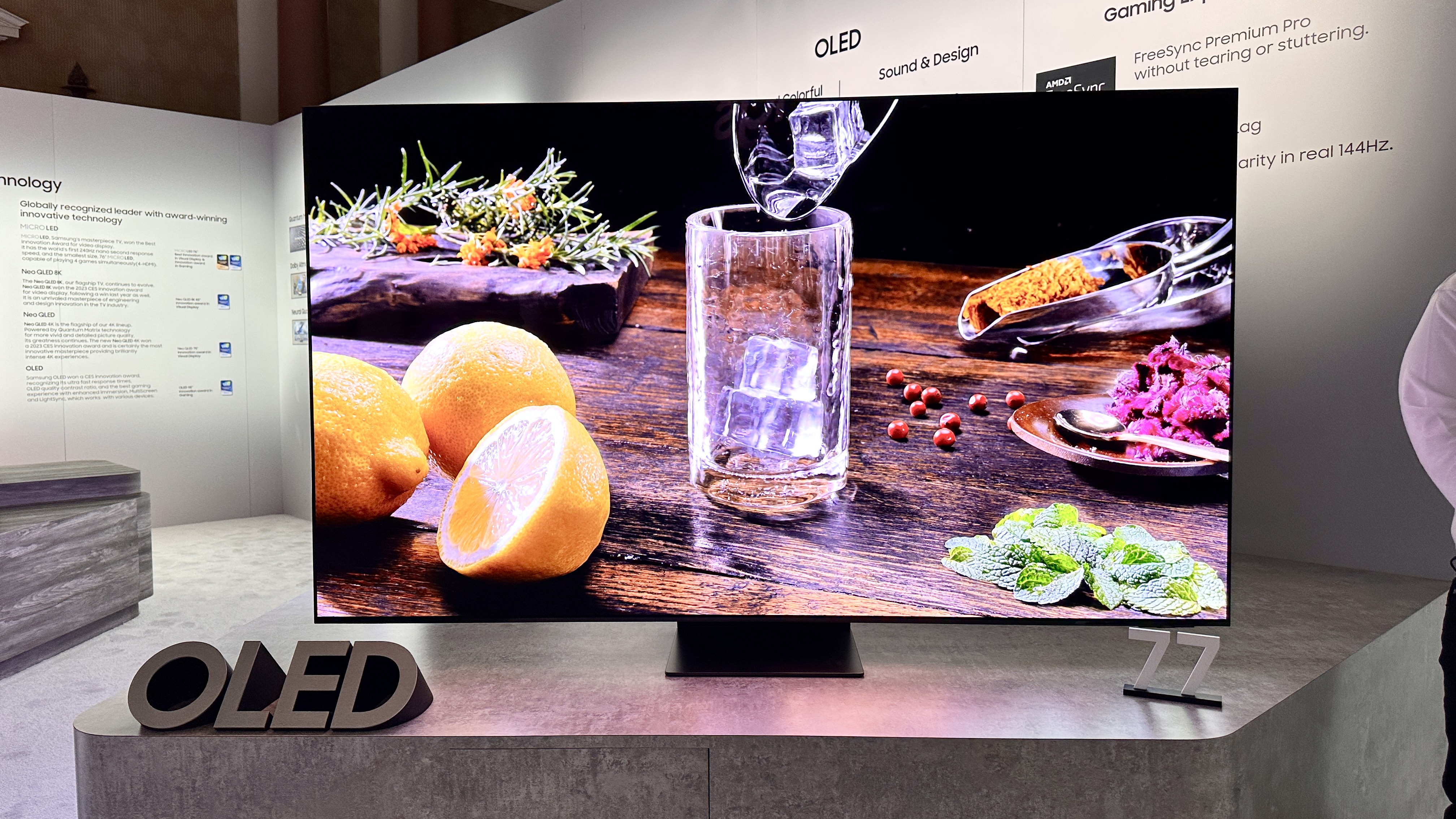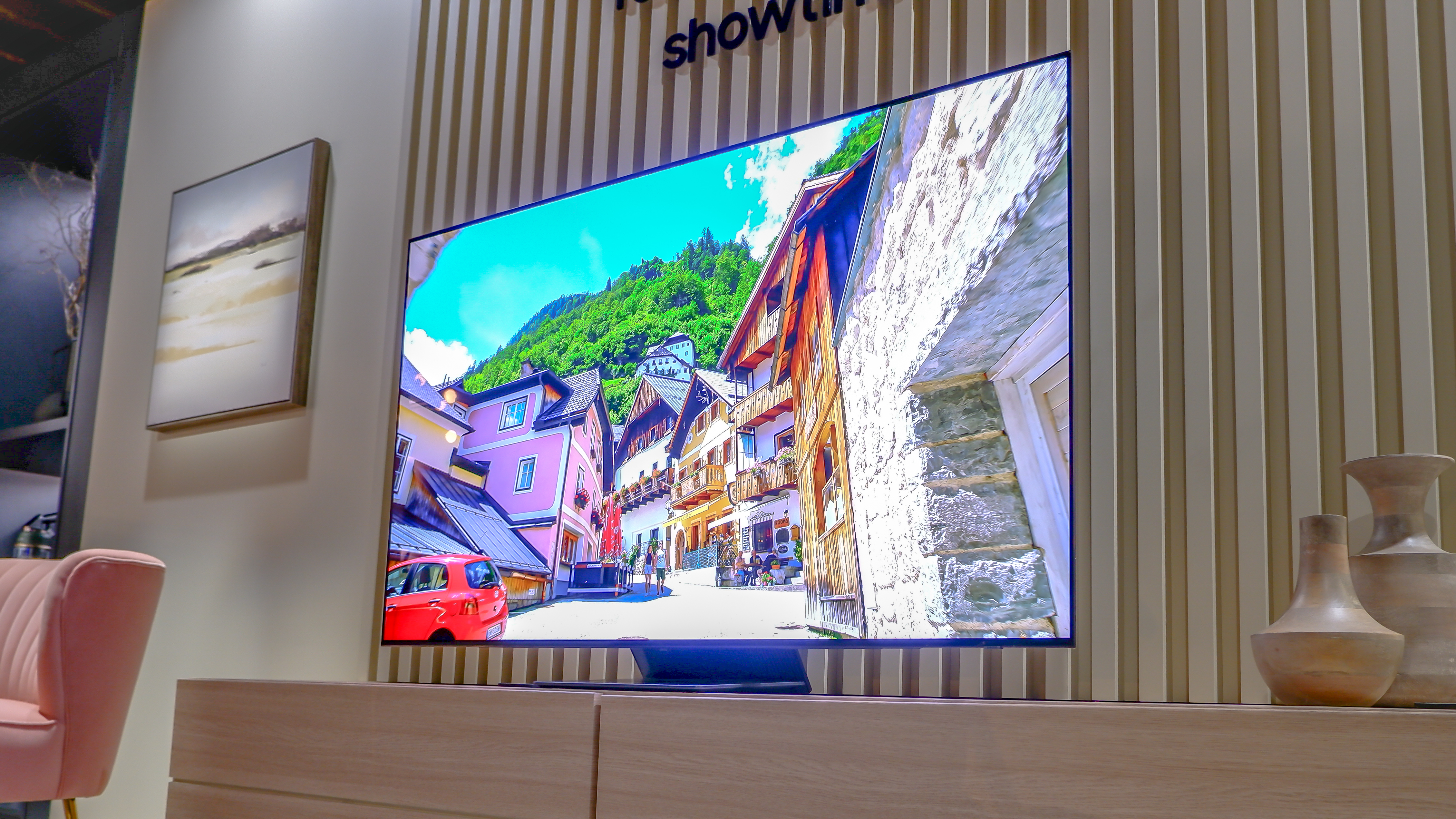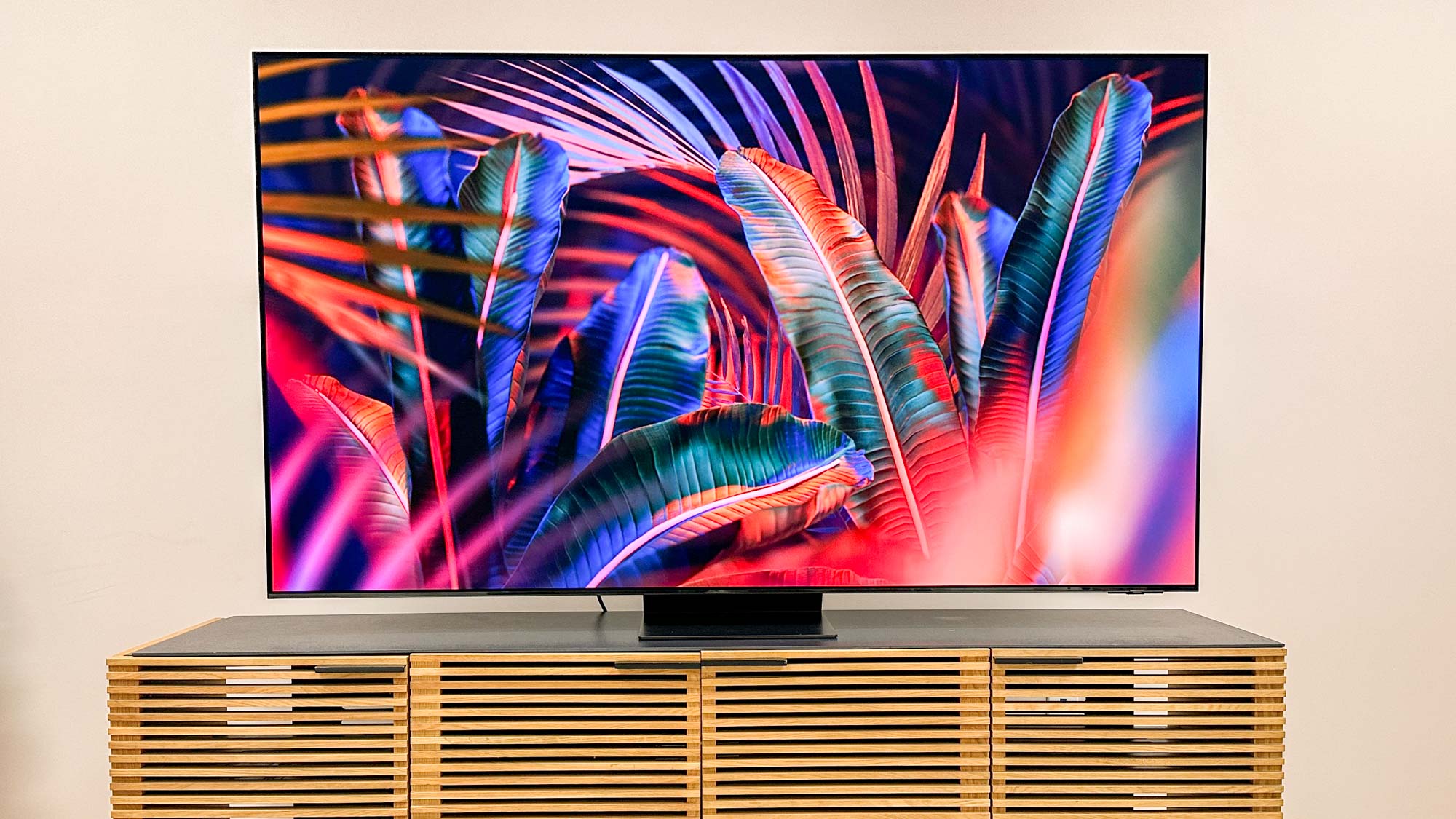Samsung S95B OLED vs S95C OLED: Which TV should you buy?
After leaving the OLED TV world a decade ago, Samsung made its historic re-entry into the market with the award-winning Samsung S95B OLED in 2022.
This year, Samsung is ready to follow up last year’s success story with not one, but two new models: the Samsung S95C OLED and the new Samsung S90C OLED that will be available starting on March 20.
With pricing information and test data now in hand, we have everything we need to help you decide between the two QD-OLED TVs. Here’s what separates the Samsung S95B from the S95C, and which we feel is the best TV for your money.
Samsung S95B OLED vs S95C OLED: Specs compared
| Samsung S95C | Samsung S95B | |
|---|---|---|
| Price range | $2,499 – $4,499 | $1,599 – $1,799 |
| Sizes | 55″, 65″, 77″ | 55″, 65″ |
| Ports | 4 HDMI 2.1 | 4 HDMI 2.1 |
| Resolution | 3,840 x 2,160p | 3,840 x 2,160p |
| HDR | HDR10, HLG, HDR10+ | HDR10, HLG, HDR10+ |
| Smart TV software | Tizen | Tizen |
| ATSC 3.0 support? | Yes | Yes |
| One Connect Box | Yes | No |
Samsung S95C vs. Samsung S95B OLED: Price and configurations
As far as 4K TVs go, the Samsung S95 OLED models are the top dog — and that means they’re typically one of the most expensive TVs in Samsung’s lineup. That doesn’t look like it’s going to change in 2023.
According to information sent to Tom’s Guide, the Samsung S95C OLED will start at $2,499, while the 65-inch and 77-inch models will cost $3,299 and $4,499, respectively.
That’s a big leap up from the Samsung S95B OLED that’s currently available in a 55-inch model for $1,599 or a 65-inch model that’s $1,799. Note that the original prices were $2,199 and $2,999, so the prices have come down.
There was supposed to be a 77-inch screen size available for the Samsung S95B, but if you click on that size on Samsung.com (opens in new tab) it brings you to the S95C, which makes us wonder if the 77-inch B model will ever come out.
Long story short, at launch the Samsung S95C is going to be at least $900 more than what you can find the S95B for online.
Samsung S95C vs. Samsung S95B TV: Design

When looking at them, there’s not a huge difference in terms of design between the Samsung S95C vs. Samsung S95B. In fact, from the front, they’re almost identical.
Where the big changes are happening in the S95C are in terms of slimness and the way the ports are situated around the back of the screen.
As you can see from the chart, the S95B doesn’t come with a OneConnect Box while the S95C does. That means the S95C is a bit thicker at 1cm deep at every point, but it doesn’t have a bump at the bottom where the Samsung S95B jutted out.
Neither of these TVs are bad looking, obviously, and which one you’ll prefer will depend on whether you want cords coming from the back of the TV or want the gallery-style design without any wires.
Samsung S95C vs. Samsung S95B OLED: Test results
In our preliminary testing at Samsung’s North American HQ, the Samsung S95C performed pretty much on par with its predecessor in every area except peak brightness where we saw around a 30% increase in the newer model.
| Samsung S95C | Samsung S95B | |
|---|---|---|
| Input Lag | 9.2 ms | 9.2 ms |
| Brightness (10% window) | 1374 nits | 1010 nits |
| Delta-E (Lower is better) | 4.0946 | 3.0184 |
| UHDA-P3 Color Gamut | 99.18% | 99.76% |
| BT.2020 Color Gamut | 74.65% | 74.97% |
The only downsides we saw to the tests is that Samsung hasn’t made any progress on overall color saturation with similar coverage in the BT2020 Color Gamut and it appears as though the Delta E value that measures how “off” colors are has increased year over year.
Of course, we’ll re-test the TV when it makes its way to our labs, but these are the baseline numbers that we’ve seen so far.
Samsung S95C vs. Samsung S95B OLED: Performance

Having seen the S95C at CES 2023, we were really pleased with how it looked. In terms of clarity in the details of objects seen on the screen, the S95C did an excellent job producing crisp, clean and vibrant images. The S95C uses Samsung’s latest Neural Quantum Processor, which is what’s working behind the scenes.
For gamers, the biggest performance upgrade for the S95C is support for a 144Hz refresh rate when connected to a gaming PC. Pair that with AMD’s FreeSync Premium Pro and we could have one of the best gaming TVs of the year
For gamers, however, the biggest performance upgrade for the S95C is support for a 144Hz refresh rate when connected to a gaming PC. That’s the most common refresh rate seen on gaming monitors and a feature inherited from Samsung’s work in that area. Pair that refresh rate with AMD’s FreeSync Premium Pro and we could be looking at one of the best gaming TVs of the year.
However, the S95B is no slouch. In our review we praised the older OLED for its bright, rich and accurate colors. Spider-Man: No Way Home, entranced us anew with its web-choked, multiverse-spanning action while Gotham City of The Batman sparked with its ultrarealistic grit and glory.
There’s no winner here (yet) but compared to other OLED TVs, neither are losers.
Samsung S95C vs. Samsung S95B TV: Which should you buy?

Unless you need a 144Hz refresh rate, a brighter picture or larger screen size, the Samsung S95B looks like it will offer 95% of what the Samsung S95C brings to the table at a lower price. That’s not a knock on the effort Samsung put into the S95C, but rather an acknowledgement of how good of a job it did with the S95B.
The other factor here is price. It’s hard to ignore the $900 price differential between the two TVs. There’s no doubt that the S95C has the better specs and, in our opinion, better design. But are those aspects worth the extra money? Some may want to wait for the S95C to get discounted before investing.
We’ll let you make up your own mind based on what kind of performance you’re looking for and how much you want to spend, but having seen both of the QD-OLED TVs in person, you can’t go wrong with either of them.
More from Tom’s Guide
For all the latest Technology News Click Here
For the latest news and updates, follow us on Google News.
